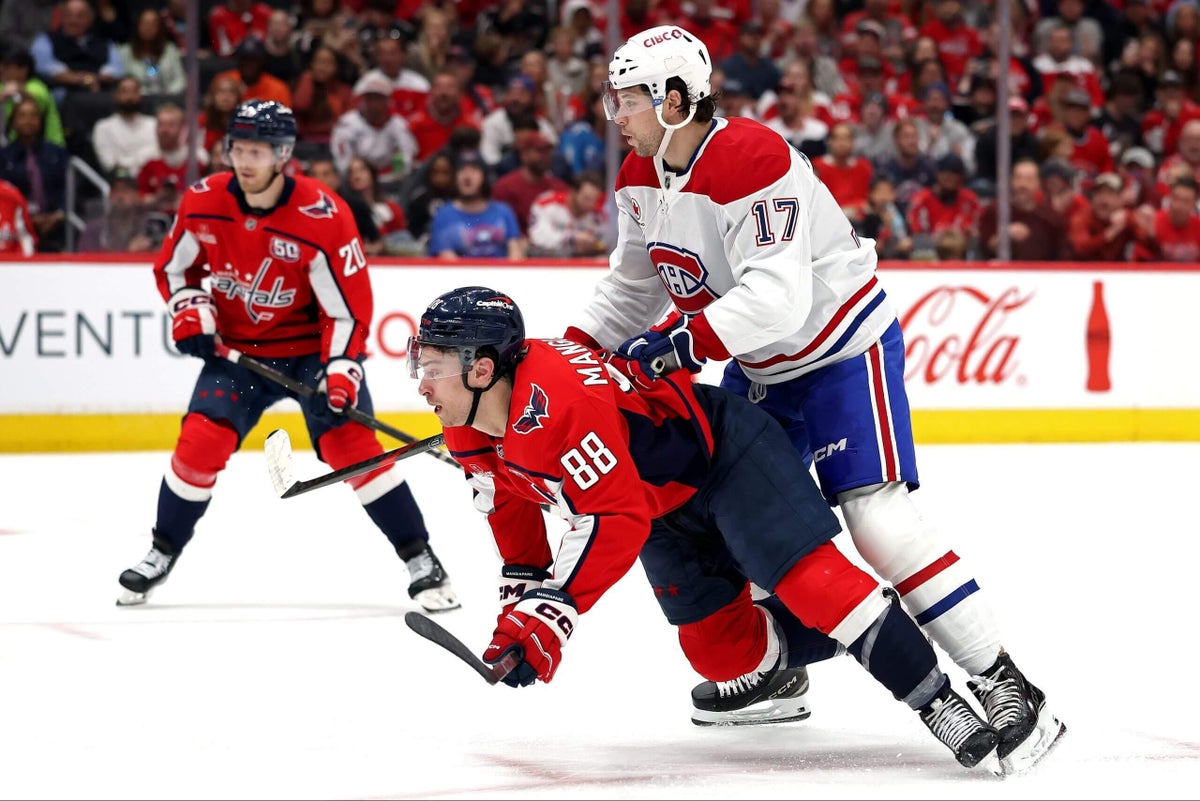

WASHINGTON — The Montreal Canadiens were in a good mood at practice Tuesday, one day after losing Game 1 of their first-round playoff series to the Washington Capitals 3-2 in overtime.
Players were smiling, having fun playing small-area games prior to the start of practice. The mood was light, the opposite of what you would normally think it would be after losing a playoff game, especially with that being the first playoff game so many of the Canadiens had ever played.
Advertisement
That was because in spite of the loss, the Canadiens came away from Game 1 feeling good about their chances in Game 2.
“I think we take some confidence from it,” centre Alex Newhook said after practice. “The first period wasn’t our best, but in the third, we took over the game. So I think we showed we can take over a game when we need to.”
There was a moment in practice when the Canadiens were doing a two-on-one drill and Josh Anderson was sent a saucer pass that bounced off him. Regardless, Anderson wound up and slapped the puck out of the air and past goaltender Jakub Dobeš. Everybody cheered, and Anderson cheekily pointed down to signal a good goal.
The play in practice jumped out because the previous night, Anderson made an equally impressive play with his hands, knocking a pass from Christian Dvorak out of the air at the Washington blue line while killing a penalty late in the second period and trailing 2-0. The skilled move made it look like Anderson would be going in on a breakaway, but he wasn’t able to properly control the puck after knocking it down, and it rolled off his stick harmlessly into the corner.
Considering the Canadiens lost in overtime, meaning every missed opportunity was potentially a game-changer, how did Anderson digest that play? Did he think about it that night, or was he able to park it?
“A little bit,” Anderson said. “I was frustrated when it happened because it could have been a grade-A scoring chance coming in there and an opportunity to put one in the back of the net. But I’ve got to find more ways for myself to get to the net and get more shots for sure. But also get on the forecheck as much as I can, I think I struggled with that in the first period.
Advertisement
“That was the most frustrating part.”
So not the potential breakaway?
“No.”
The Canadiens’ inability to get on the forecheck is something that has creeped into their game at various points this season. Sometimes it’s been their refusal to trust the forecheck and put pucks deep instead of trying to carry them in, but that wasn’t the case in the first period of Game 1.
“We can’t execute the next thing when we’re actually in space,” coach Martin St. Louis said Tuesday. “We can’t possess a puck through the neutral zone, we can’t make the next pass to a guy who’s going to have an opportunity to possess it across the line, or chip a good puck or rim a puck, whatever. To me, it’s executing, from the top of the circles to the far blue line. If you can execute on the other side of that pressure, you’re going to carry the puck through the neutral zone, whether it’s with your feet or with moving the puck, and when you can’t do that, they get it back.
“So for us, we have to execute between the top of the circles and the blue line.”
You can coach tactics, you can coach work ethic, but it’s a bit harder to coach execution. St. Louis often refers to his players’ intentions, but good intentions with bad execution make those intentions useless, and it is more difficult to correct. The players just need to do what they are expected to do.
But that’s what made Game 1 a confidence boost for the Canadiens, because plays that they were unable to execute in the first period became plays they could execute in the third period.
The lack of execution St. Louis was referring to was evident on the very first shift of the game.
Alexandre Carrier goes back to retrieve a puck, shoulder checks and sees Anthony Beauvillier bearing down on him, but he moves the puck anyway. Same goes for Mike Matheson, who gets crunched by Alex Ovechkin just after moving the puck up the wall.
Advertisement
So far, so good.
But then Anderson has time to make a play with the puck, and he just doesn’t make the play. The Capitals were right back in the Canadiens zone moments later.
“We managed their pressure fine, but it was the next play after the pressure that we couldn’t make,” St. Louis said. “We weren’t in possession in the first, and when you’re not in possession, guess what? They’re coming back. If you can’t execute the play on the other side of the pressure, they get the puck back and it’s coming back your way.”
A perfect example of the vast change for the Canadiens between the first and third periods is perhaps best exemplified by this zone exit by Nick Suzuki in the first period that winds up going nowhere.
Suzuki flips the puck into the neutral zone to Cole Caufield, who makes a short chip pass to Juraj Slafkovský, and then, nothing. Slafkovský putting that puck directly on Logan Thompson never gave that forecheck a chance to get going. It was dead on arrival.
Now here is almost the exact same scenario in the third period, except this time it is Slafkovský receiving the pass from Suzuki and chipping it to Caufield, and it works a little better. The Canadiens didn’t wind up with the puck in the offensive zone, but they did apply some pressure on the forecheck.
Moments later, on that same shift, Lane Hutson rimmed a puck around the boards, Suzuki and Caufield executed that exact same forecheck, this time they secured the puck, and Suzuki went on to score the game-tying goal.
ON N’ABANDONNE PAS
THE CAPTAIN TIES THE GAME#GoHabsGo pic.twitter.com/7tbaDpHq7U
— x – Canadiens Montréal (@CanadiensMTL) April 22, 2025
It would be easy to write off the lack of execution in the first period to nerves. They were definitely a part of it, but it also had a lot to do with what the Capitals were doing to the Canadiens, the physicality, taking away time and space, pressuring pucks all over the ice. The nerves might not be there at the same level in Game 2, but what the Capitals are doing to impact the Canadiens’ execution will be, and it might be at a heightened, more sustained level.
Advertisement
“I think it’s both,” St. Louis said. “I think Washington’s going to keep doing the same thing, they’re very good at it. Listen, they are where they are for a reason, they’re a very good hockey team. Did we calm down through that game a little bit? Yes, I think our nerves were better the second half of that game, and I hope we can start the game tomorrow — which for a young team, I don’t know — but I hope we can start the game in that kind of mindset.
“Just have a calm mind, understand what Washington is good at and try to execute through that.”
(Photo: Patrick Smith / Getty Images)
This news was originally published on this post .







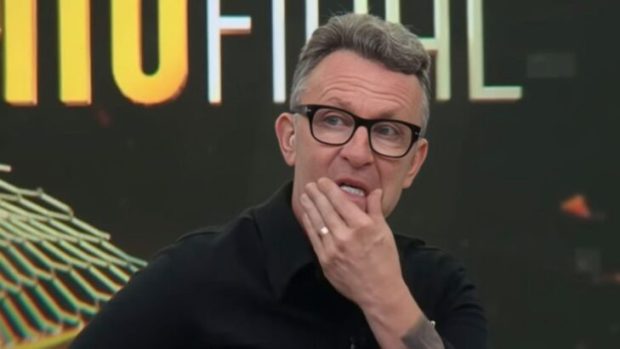
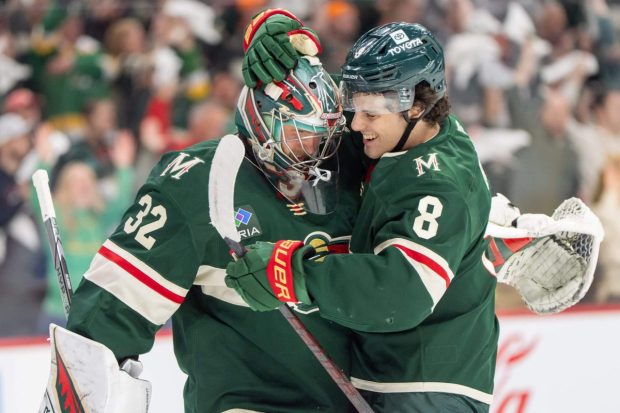
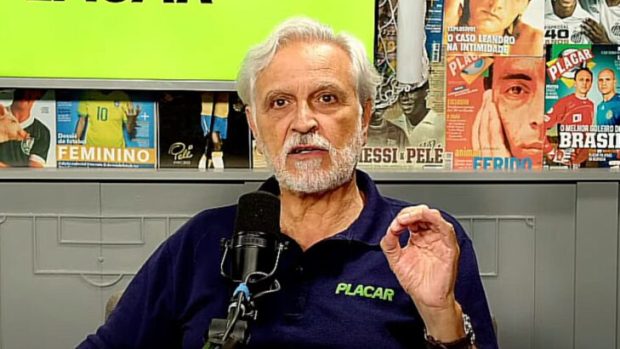
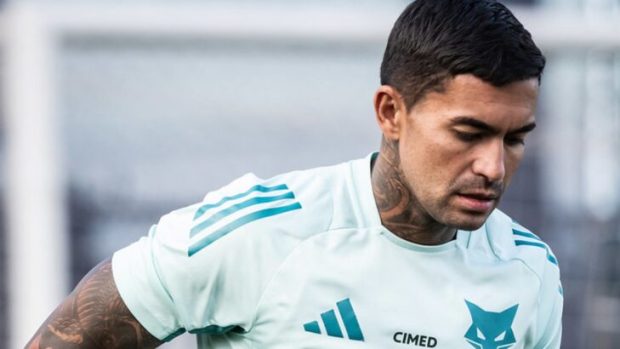
Be the first to leave a comment